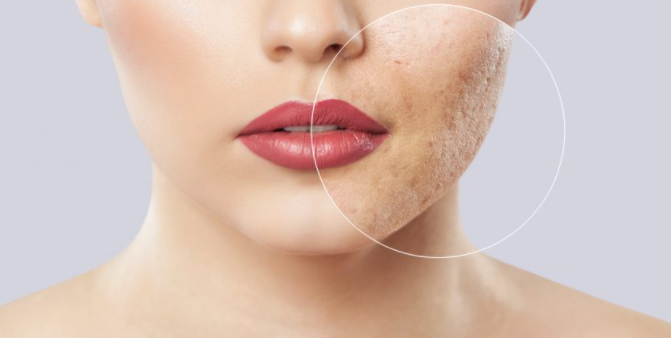-
How to Get Rid of Acne
You can find a lot on the internet about acne and pimples. This includes everything from home remedies for acne to more acne popper videos than anyone should watch. But when it comes to finding expert, proven advice on how to get rid of acne, how to get rid of acne scars and more, it can be hard to decipher what's true and what's fake. So we have Dr. Kenneth Howe , Dermatologist Wexler Dermatology, to answer all your questions related to acne and pimples... Hopefully this will prevent anyone from having to apply toothpaste all over their face again.
Do home remedies for acne and pimples really work?
Home remedies for acne and pimples such as apple cider vinegar and honey can be found on almost every lifestyle and beauty website, but it is not always the best solution. Apple cider vinegar is occasionally touted as a home remedy for acne, but the science isn't there, says Dr. Howe. While vinegar and acetic acid can The bacteria that cause acne live deep within the hair follicle. Apple cider vinegar applied to the surface of our skin will not reach the bacteria in the hair follicles. What about honey? Dr. Howe says it's a great idea, but probably not that effective. He admits that honey is said to have anti-inflammatory properties, so it may reduce the redness and swelling of acne, but I don't think it helps much.
Regarding household products such as toothpaste and antibacterial soaps, Dr. Howe says: "Toothpaste and antibacterial soaps can be very harmful. Yes, toothpaste may dry up moist, juicy pimples faster by irritating the skin, but it may also make the pimples redder and more swollen. . Hmm, thanks. Howe goes on to explain that antibacterial soap will stops the colony formation of surface bacteria on the skin, but does not kill the bacteria that live in hair follicles. It has little to no effect when it comes to getting rid of existing acne.
What are the causes of acne? Can cystic acne start later in life?
Many people think it's clear when they leave their teens and into their twenties, until the mirror says otherwise. In my experience, it is very common to see young adult women in their mid-twenties to mid-thirties with new-onset cystic pruritus, Dr. Howe said. There are many reasons for this. They have a new stressful career, have stopped or started birth control pills or hormone-releasing IUDs. Or it may be a recurrence of cystic acne that was treated with Accutane in their teens. This is because the effects of Accutane are eventually lost. (The last file is Good To Know.
Some people still believe the old woman's story that poor hygiene can cause acne, but Dr. Howe debunks that theory. The events that lead to acne occur inside our hair follicles," he explains. Dirt on the surface of the skin has no effect on these changes.
Is Acne Contagious?
Worried that if you wear makeup with someone who has acne or sleep on the same pillow, you might experience a breakout? Don't worry, says Dr. Howe. Acne and pimples aren't contagious at all, he says. Use the same pillows, share makeup, do whatever. You won't get acne from other people.
How to get rid of acne?
Perhaps the biggest question of all: How to get rid of acne? Here's Dr. Howe's best advice: Don't pick at your acne! It will only make things worse. If you have already made the deed, the most important thing is to STOP PICKING. Put your hand down. He knows what you're thinking. Don't re-pick the same spot in a futile attempt to fix the damage you've already done. People do it all the time, and it can get really ugly. Dr. Howe said that picking can cause scarring and induce scarring. That is, a red to purple discoloration of the skin that lasts for several months after the original acne has disappeared.
If you are prone to acne, you may find it helpful to use a cleanser that contains salicylic acid. If you want to prevent it, use a salicylic acid face wash when your hormones are fluctuating, around high stress types or during menstruation. The good thing about salicylic acid is that it penetrates the hair follicles well and thus helps prevent clogging that leads to acne, says Dr. Howe.
Witch hazel is another good preventive measure. Witch hazel removes excess oil and dead skin cells, but it does not strip healthy skin, says Dr. Howe. It can help fight acne and pimples. Still, he advises you to read the fine print. People should be wary of witch hazel products that also contain alcohol, as the latter ingredient can make excessive dryness more likely to occur.
Bottom line: don't be choosy, don't stress, and don't wait patiently. Meanwhile salicylic acid , witch hazel , and some TLC can help you make an appointment with a dermatologist who knows exactly what you need if acne persists.

